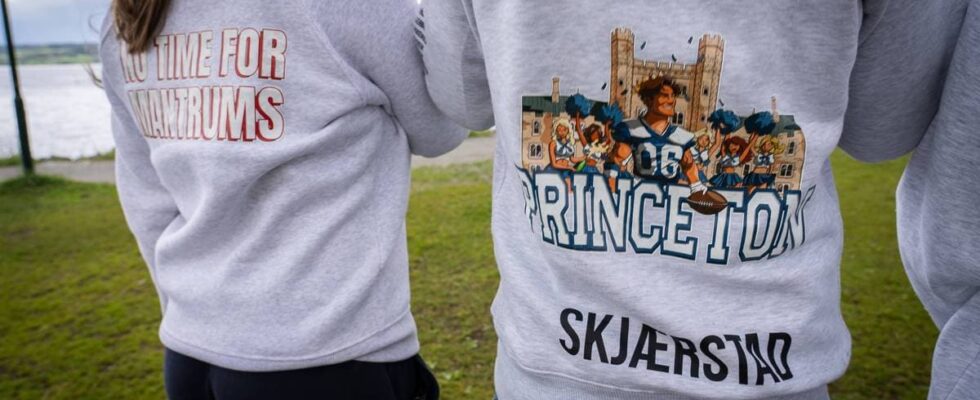Just before the school holidays, the county council in Innlandet decided that when students return after the summer, it is forbidden to wear clothes that show which Russian group they belong to. – It is a clear intervention in the students’ freedom of expression and personal freedom to express preferences, belonging and solidarity, says law professor at the University of Bergen (UiB), Hans Fredrik Marthinussen. He believes that banning the use of Russian sweaters is not legal, and wonders what kind of legal advice the county politicians have received before they made the decision. news learns that the legal department in the county municipality has not been involved in that assessment. Read further down in the case what the County Mayor responds to. Will prevent exclusion The aim of the county politicians is to prevent pupils who are not in a Russian group from feeling left out. That bus groups dominate the Russe celebration has been a big topic for several years. This spring, the government announced that it would take action. The county council in Innlandet adopted a new point in the rules of order at the upper secondary schools: “Marking groups and/or own gangs, including Russian groups, by using symbols and effects with the aim of excluding other pupils, is not accepted as it works against an inclusive learning environment for everyone.” Law professor Hans Fredrik Marthinussen believes it will be difficult to assess whether those who wear clothing with logos for Russian groups are doing so to bully others or not. Law professor at UiB Hans Fredrik Marthinussen. Photo: news Hordaland / news Hordaland – It will be very difficult to enforce what the purpose of wearing such a sweater is, he says. If the politicians had decided that it was not legal to wear Russian clothing with a group logo in general, he believes that it would clearly have been an illegal decision. He believes that is why they have chosen this formulation. – Does that mean that Russians can wear the sweaters at school and say they don’t do it to exclude others? – Yes, they can. Then the question is how much discomfort it causes, says Marthinussen. He believes this will be so difficult that the county politicians should have refrained from making the decision. Received only positive feedback County mayor in Innlandet, Thomas Breen, says that he has received exclusively positive feedback. He says they make many regulations in the order regulations, which some might say goes beyond the individual’s ability to act and express opinions throughout the school day. – What kind of legal advice have you received in connection with the proposal that was adopted? – We have looked at the regulations and Udir’s (Directorate of Education editor’s note) supervisor. And it’s not like it’s straightforward to interpret what’s outside and inside in the context we’re talking about here, says Breen. County mayor in Innlandet Thomas Breen (Ap) has only received positive feedback on the decision. Photo: Alexander Nordby / news He says that if it turns out that it is in a border country, or across the border, then they will try it in court. But he believes the decision stands. – How should one assess whether the use of a jumper with a logo is intended to exclude other pupils? – We think we should turn it around. They are allowed to wear Russian clothes at school with the school’s name and first name. We will not allow other use of symbols, says Thomas Breen. He says that if the pupils do not comply with the rules of order repeatedly, it can affect the grade in order and behaviour. One of several measures The county mayor in Innlandet says they have a lot of documentation on how the visible groupings in Russian litters affect young people. Both linked to exclusion and the fact that it starts at a young age. Throughout the winter, the county politicians in Innlandet have gathered experience from other counties on what they have done to include more people in the Russian celebrations. After the summer, they will look at measures that might be suitable in the interior. He says it may be relevant to find premises where they can have parties in collaboration with volunteers, where it is safe and everyone can come, and events in more controlled forms. – It is a bit of a problem for the Russians today, that they have nowhere to meet, he says. In addition, they will work with the national measures, which is to move Russian time to after 17 May. – It is only Norway in the whole world that has such an extravagant Russian celebration as we have had over the past 20 years, he says. Published 22.06.2024, at 19.14 Updated 22.06.2024, at 19.25
ttn-69
Law professor believes ban on Russian sweaters is illegal – news Innlandet – Local news, TV and radio

